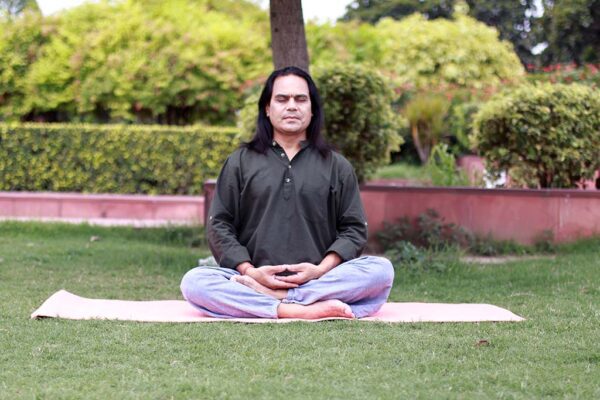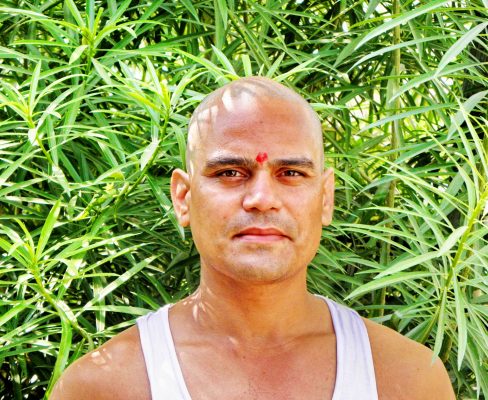Spiritual seekers can often become confused on their path. Sadhguru looks at why this happens and how to use this confusion productively.
The people who are above physical want and realise that the worldly solutions to vexations are only piecemeal and that problems change colour like a chameleon, qualify as seekers proper. This is not a small minority.
Believing in a Higher Power
Spiritual seekers are often dedicated to finding and embracing the truth. They spend time in prayer, meditation and other spiritual rituals. They also seek out ways to help others find their own path to the truth. Despite these efforts, many spiritual seekers make some mistakes that can keep them from moving forward in their search for the truth.
One of the most common mistakes that spiritual seekers make is believing in a Higher Power. Believing in a Higher Power means having trust and confidence in something that cannot be seen or heard. It can mean following an organized religion or simply being independent in one’s beliefs. Some people refer to this higher power as God or a version of it, while others use terms like Universe or Source Energy.
Regardless of what you call your Higher Power, it must be greater than yourself. A good way to connect with it is through mindfulness, a practice that involves being fully aware of the present moment. To achieve this, you must practice nonjudgment and compassion.
Another way to connect with your Higher Power is by seeking out the positive aspects of every situation. This can include finding the calm in a crisis, the silver lining in a storm or the lesson that is being taught through difficult circumstances. Having patience and perseverance will also help you connect with your Higher Power.
A final mistake that spiritual seekers often make is listening to gurus, holy books or other religious leaders too closely. They may believe that what they are hearing is the truth because it is coming from an enlightened being. However, enlightened beings can be wrong, especially when they speak about subjects that they don’t know much about.
To avoid this mistake, you should always question what you hear and read. Do your research and learn as much as you can about the subject. This will allow you to discern what is true from what is false. You can also ask for guidance and support from other people in your recovery program or community.
Believing in Yourself
The ability to believe in yourself is a vital part of thriving. It allows you to take risks, pursue dreams and create the life that you desire.
Unfortunately, believing in yourself can be difficult to accomplish. Many people struggle with low self-esteem, which can be caused by a number of things. It may be a result of childhood experiences, negative self-talk or toxic relationships. However, there are some simple steps you can take to begin believing in yourself again.
To start, it is important to remember your past successes. You can do this by making a list of your accomplishments, even those that seem small. This will help you see the magnitude of your accomplishments, which can in turn lead to more confidence. Additionally, it is helpful to have positive self-talk and daily affirmations to boost your confidence.
It is also essential to surround yourself with positive individuals. This can be done by finding a mentor or joining a mastermind group. Another way to increase your self-confidence is to practice visualization, which is the process of imagining your goals coming true. This helps to motivate you and decrease anxiety.
Lastly, it is important to change your perspective on failures. Rather than viewing them as a roadblock to success, you should view them as opportunities to learn and grow. The more you learn from your mistakes, the faster you will be able to overcome them.
In order to build your self-esteem, you must first acknowledge the causes of your low self-esteem. If you are unable to pinpoint the source, consider whether you are engaging in spiritual bypassing, which is using spirituality to get a quick fix instead of dealing with your struggles. This can be anything from relying on inspirational quotes to horoscopes.
To begin to believe in yourself, try experimenting with new activities and challenging yourself. For example, if you normally order the same thing when you go out to eat, start ordering something different. You could also challenge yourself to put yourself out there and not listen to the negative self-talk that normally holds you back.
Believing in Others
When you believe in others you will act in a way that helps them achieve their potential. This is important for the development of relationships and building trust. It is also important for achieving success in competitive situations. People usually respond to your beliefs by adjusting their behavior to match them. It is important to have high expectations for those you believe in because this will lead them to perform better.
A spiritual seeker often equates spirituality with images that are peaceful like vast mountain ranges, blissful like sunsets, and transcendental like big temples. While these images can be spiritual, they can also be used as a cover for avoidance of the more substantial work that is required for real enlightenment. This is called spiritual bypassing and it can take on many shapes and forms. It can include using inspirational quotes, horoscopes, or some other method of giving yourself a false sense of security and happiness while avoiding the hard work of finding truth.
Another common mistake that a spiritual seeker makes is believing in spiritual teachers and schools. This is a dangerous trap because there are plenty of strange stories about people ending up in cults and getting brainwashed. It is important to always be able to judge a teacher or school on their actions and not on their words. It is also important to remember that spiritual wisdom is just a tool that can be used to understand ultimate truth. The actual experience of true enlightenment is beyond the words.
Spiritual seeker’s often end up in this trap because they are seeking a shortcut to enlightenment. They think that if they just read the right book or find the right teacher, then everything will be okay. However, this is a dangerous path because there are many different ways to achieve enlightenment and it is up to each individual to determine the best method for them. One great book that can help you on your journey is the Awareness Watching Awareness Meditation Technique by Jed McKenna. It is a powerful book that can change your life if you apply the lessons it contains.
Lack of self-belief
You need to believe in yourself to pursue and achieve your dreams. If you don’t, you’ll be less willing to take risks and make big changes in your life. You may also be tempted to settle for an average life because you’ll think that you can’t do better. The truth is that you can do anything if you believe in yourself.
Becoming a self-believer starts with understanding what your personal values are and what you’re truly after in life. You can do this by examining your core beliefs and practicing mindfulness. Then, you’ll have a clearer idea of the path that’s right for you and the skills that you need to get there. Once you have this clarity, it will be easier to believe in yourself and your ability to achieve your goals.
To begin believing in yourself again, you need to change the way you look at failure. If you see your mistakes as roadblocks to success, you’ll be stuck where you are now. Instead, you need to recognize that every experience is a learning opportunity that will help you grow. By embracing these lessons, you’ll have the confidence to bounce back and push yourself to new levels of achievement.
A lack of self-belief can be caused by the people you surround yourself with. Spend some time assessing the relationships in your life to determine who is supporting you and who is holding you back. If you find yourself surrounded by negativity, it’s time to start seeking out positive people who are more supportive of your journey.
You can also begin to believe in yourself again by changing the way you talk to yourself. Be mindful of the negative statements you say to yourself and replace them with empowering affirmations that will inspire you to take action. This will boost your coping abilities and psychological well-being.
Becoming a self-believer can be challenging, but it is worth the effort. The benefits of believing in yourself are many, including increased confidence and the ability to take risks and make big changes in your lifestyle. It will also give you the courage to pursue ambitious goals that require you to stretch your comfort zone and build new skills.

















